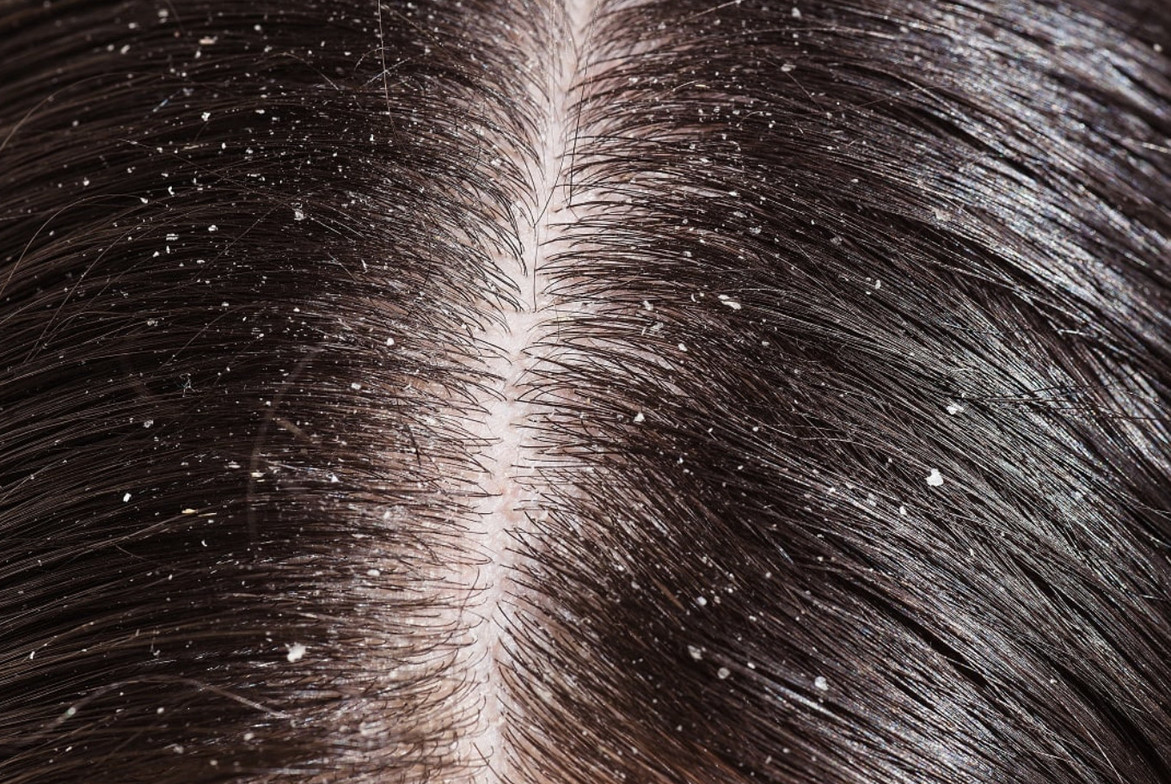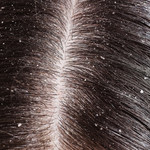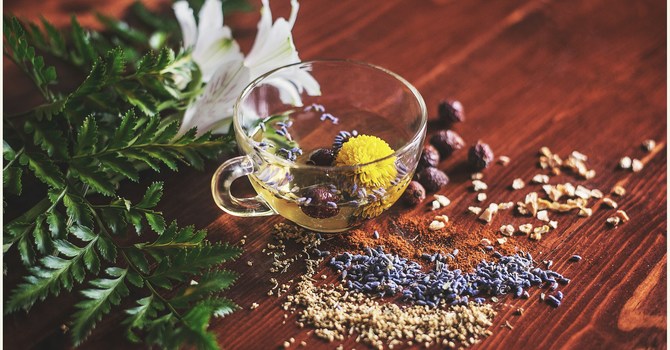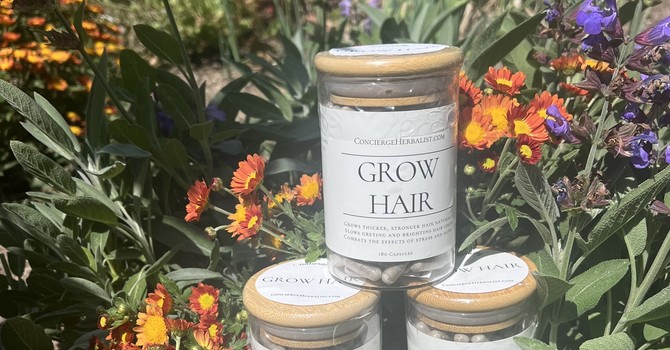One common misconception among patients is associating the flaking and scaling with dryness, leading them to avoid shampooing their hair. However, in cases of seborrhea, which involves excess sebum (oil) production, avoiding shampooing can actually worsen the condition by allowing scales to accumulate. Patients should be encouraged to shampoo daily or every other day to exfoliate the scalp and reduce scale buildup.
Chinese Medicine View of Scalp Seborrheic Dermatitis
From the perspective of Traditional Chinese Medicine (TCM), dandruff (scalp seborrheic dermatitis) is seen as a manifestation of internal imbalances leading primarily to dampness. (Please be aware these terms are Chinese Medical Diagnostic terms.) The presence of dampness and heat, or the combination of wind and dampness in the body, often lead to the symptoms observed dandruff. Additionally, in its more serious form may include what is referred to as blood heat, which results in inflammation and redness, including the loss of hair. Despite dandruff's dry appearance, it is the dampness obstructing nutrition to the surface of the skin that causes the skin to build up and scale off. This dampness can combine with heat, wind, and blood heat to exacerbate the condition. Once these pathological factors (dampness, wind, heat, and/or blood heat) are cleared through the herbal therapy, the skin can begin to repair itself and function naturally.
Treating Scalp Seborrheic Dermatitis with Chinese Herbal Medicine
Chinese herbal therapy aims to treat these internal imbalances by conducting a thorough diagnosis of the underlying causes. This personalized approach ensures that the treatment addresses the specific needs of the individual. Based on this diagnosis, herbal ingredients are carefully selected and combined to achieve the best overall effect—quickly alleviating dandruff and inflammation, and then shifting the focus to reawakening the scalp's natural ability to maintain health without the ongoing need for medicine.
Dermatological treatment in Chinese Medicine is primarily through drinking a personalized herbal tea combination that patients drink twice a day. This tea is tailored to their unique condition, helping to balance the internal factors contributing to seborrheic dermatitis. Initially, the goal is to clear the symptoms, but as treatment progresses, the herbal formula is adjusted to support the body's innate healing mechanisms.
In addition to internal treatments, there are also highly effective externally applied scalp herb products available for managing dandruff. These topical applications complement the internal therapy, providing immediate relief while the herbal tea works on deeper, systemic issues. By combining a tea to drink with externally applied herbs, the condition can be shifted and cleared more quickly than doing either of these approaches alone.
The philosophy of Chinese medicine emphasizes not just symptom relief but also restoring the body's natural balance and self-regulating abilities. By first addressing the visible symptoms and then nurturing the body's inherent wellness, patients can achieve long-term relief and healthier scalp conditions without reliance on continuous treatment.
Self-Care Tips for Managing Scalp Seborrheic Dermatitis
In addition to professional treatment, several self-care practices can help manage and prevent scalp seborrheic dermatitis:
- Gentle Hair Care: Use mild, sulfate-free shampoos to avoid irritating the scalp. Wash your hair daily or every other day to exfoliate the scalp and reduce scale buildup. Avoid using hot water, which can exacerbate the condition.
- Dietary Adjustments: Reduce intake of spicy, greasy, and sugary foods, as they can contribute to dampness and heat in the body. Incorporate more cooling and detoxifying foods such as cucumber, bitter melon, and green tea.
- Stress Management: Stress is a known trigger for seborrheic dermatitis. Practices such as meditation, tai chi, and regular exercise can help reduce stress levels.
- Scalp Hygiene: Regularly washing the hair and scalp helps remove excess oil and prevent the accumulation of scales, which is crucial in managing seborrheic dermatitis.
Try Chinese Herbs for Your Dandruff
Dandruff, or scalp seborrheic dermatitis, can be challenging to manage, but with a holistic approach that includes Traditional Chinese Medical theories and self-care practices, individuals can achieve lasting relief. By addressing the root causes of the condition and maintaining proper scalp hygiene, symptoms can be alleviated, and future flare-ups can be prevented. Consulting with a qualified doctor of Chinese medicine with a specialty in dermatology ensures a tailored treatment plan that supports both immediate relief and long-term wellness.









